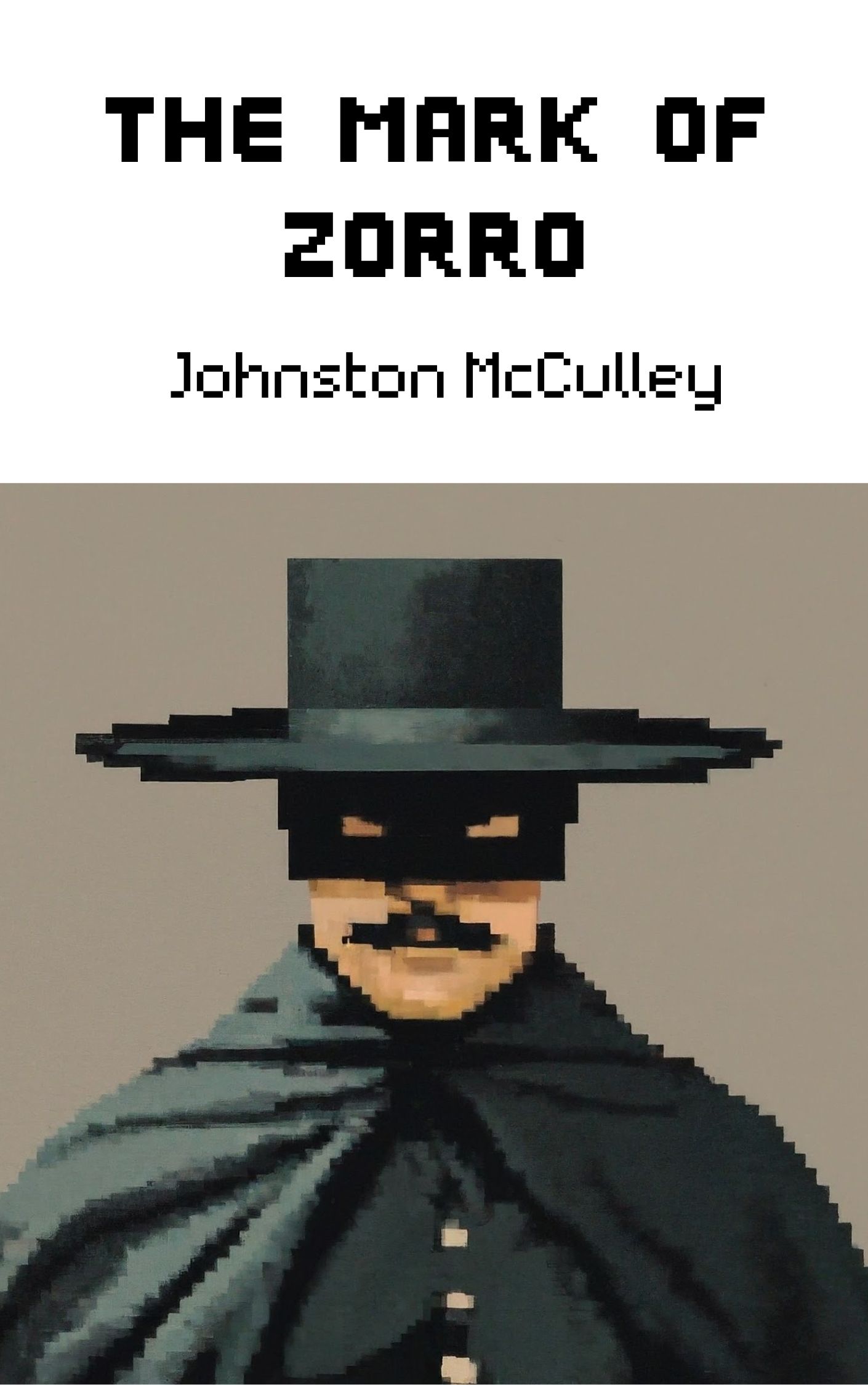The Mark Of Zorro
by Johnston Mcculley
While mild-mannered Don Diego Vega seeks a bride, the cloaked crusader Señor Zorro rides the dangerous highway of Mexican California, armed with a sword, whip, and pistol—righting wrongs, defending the weak, and punishing injustice.
Read in 39 emails
Get access to our entire book collection
$4.99 / month

Description
While mild-mannered Don Diego Vega seeks a bride, cloaked crusader Señor Zorro (Spanish for “Mr. Fox”) rides the dangerous highway of Mexican California armed with a sword, whip, and pistol—righting wrongs, defending the weak, and punishing injustice.
The story is set in Reina de Los Angeles, a town in southern California circa 1800 when California was still a part of Mexico, and when Mexico was controlled by Spain. The Los Angeles of this time is populated by four societies that must coexist, but that coexistence is out of balance.
The oldest and weakest group is the “natives” who live in the pueblo. Next come the clergy, the friales who first planted the orchards and who live in the missions. Then, the gentry, who live as dons and doñas on feudal estates, or haciendas. Finally, the land is ruled by the strongest of these powers, an unjust governor in San Francisco de Asis. He controls the army under whose rule the natives are abused, the friales mistreated, and the gentry disrespected. This is the story of a young man of “good blood” who decides he must restore balance to this frontier society.
Johnston McCulley wrote stories of Zorro for forty years. This, his first Zorro story, was originally serialized in a magazine as The Curse of Capistrano. Señor Zorro went on to leave a deep impression on popular culture, and has appeared in the work of many other authors and artists, in many media, ever since.
One reason the character of Zorro endures is that he carries on a tradition of daring and heroic figures, both literary and historic, who precede him. Best known perhaps are the medieval Robin Hood of English folklore whose “merry men” are reminiscent of Zorro’s “avengers,” and the Scarlet Pimpernel of revolutionary France. Lesser known is the real-life figure William Lamport, the “Irish Zorro,” whose statue still stands in Mexico City.